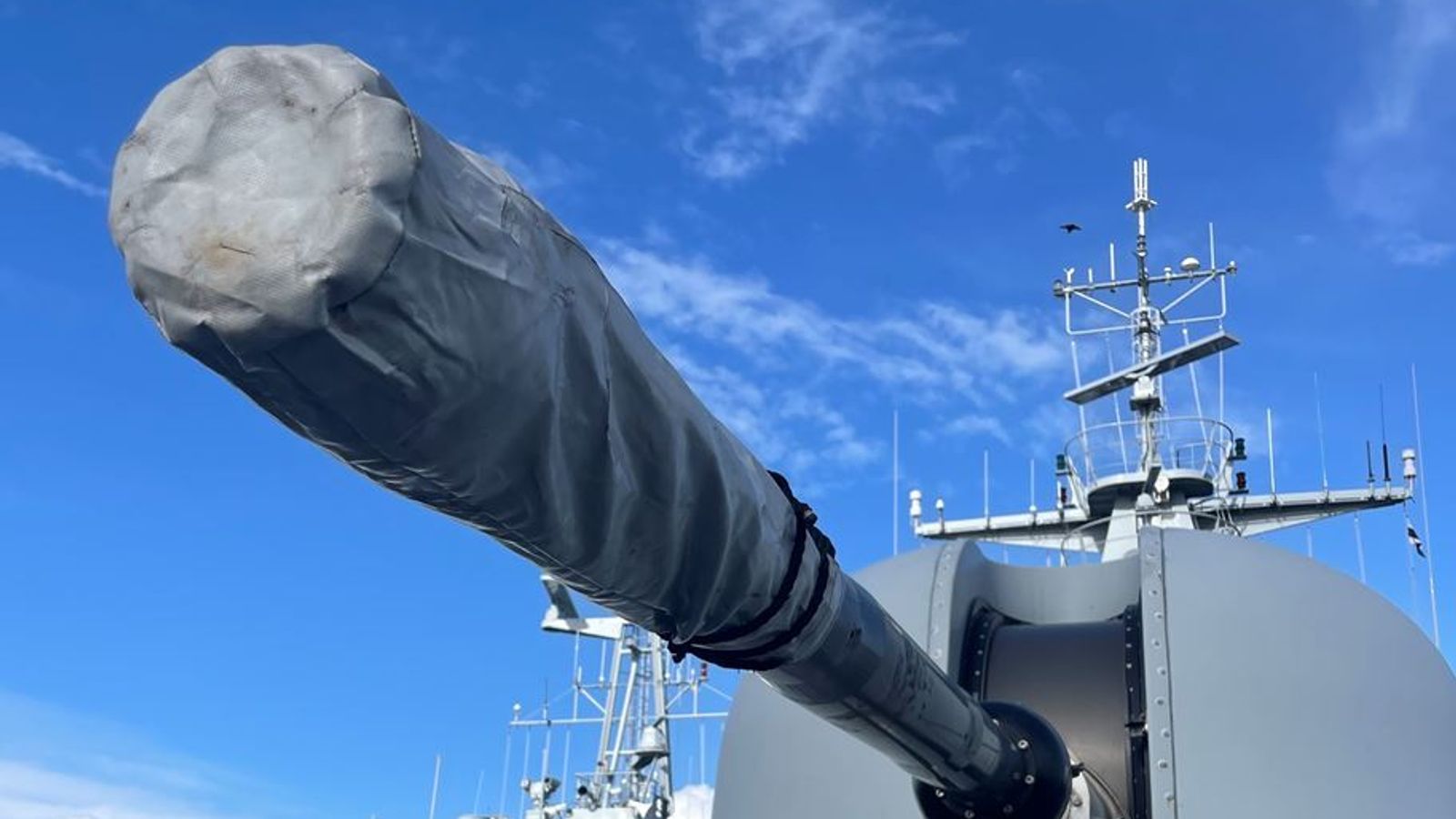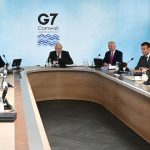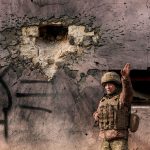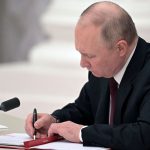For the first time in decades, Ireland is gripped by a debate over the country’s long-held – and much-cherished – military neutrality, as its government struggles to tread a line between helping Ukraine and preserving its neutral status.
The European Union may be sending lethal weapons to another country for the first time, but member state Ireland is not. Other neutral countries, like Sweden and Finland, have sent weaponry to Ukraine, but Ireland has not.
Dublin has committed €31 million (£26m) in aid, but the military equipment it is contributing is limited to items like body armour and MREs (meals-ready-to-eat). There were even calls to ensure that fuel paid for by Ireland would only be used in non-fighting vehicles, an impossibility in the chaos of a war zone.
Against the backdrop of horrific imagery from Ukraine, the situation has led to an unprecedented scrutiny of Ireland’s non-aligned status.
The Taoiseach (Irish Prime Minister) Micheal Martin has repeatedly pointed out that Ireland is not politically or morally neutral when it comes to the Russian invasion, which the Irish government has condemned in the strongest terms.
“There will be a debate in Ireland,” he has conceded. “But we don’t have time for it right now. One cannot, in the middle of a crisis, change a long-held policy overnight.”
‘Ireland needs to be more engaged’
Ukraine-Russia war news live: Kyiv says ‘definitely room for compromise’ in talks amid NATO concession hint – but Putin gives gloomier update; Blair says West should not rule out military intervention
Ukraine war: 20,000 flee Mariupol in biggest evacuation yet from besieged port city
Ukraine war: Blind couple forced to wait days for rescue amid air battle over Kyiv
Minister for Defence Simon Coveney, who is also Minister for Foreign Affairs, told Sky News that “I don’t think that [military neutrality] is going to change quickly, but certainly I think there’s an increased appetite in Ireland now, and I would lead the debate on this…that Ireland needs to be more engaged, not less, in collective defence and security issues across the European Union.
“And I think the Irish public will be comfortable with that, given the brutality that we’re seeing coming from Russia in Ukraine right now.”
Minister Coveney referenced the new atmosphere surrounding Ireland’s neutrality. “There’s an openness now in Ireland to discuss issues around common security and defence in a way that is more pro-active and more open to a change in policy.”
Others are more forthright in calling for Ireland’s neutrality to be dropped. Cathal Berry is a former member of the Army Ranger Wing, an elite and secretive special forces unit within Ireland’s Defence Forces. He is now an independent TD (member of the Irish parliament).
It’s “absolutely” time for a proper debate on changing the police, Mr Berry told Sky News from his hometown of Portarlington, Co Laois.
“To be honest it’s long past time. The situation in Ukraine has really focussed our minds, it’s probably a defining moment really. Let’s remember, Russia has threatened Ireland as a member of the European Union for slapping sanctions on the Kremlin, and they could become very, very aggressive to Ireland in the next few weeks, and it’s important that we’re able to defend ourselves.”
Is Ireland’s neutrality a myth?
Ireland’s particular interpretation of neutrality, or “military non-alignment” as the government prefers to call it, has long baffled outsiders.
“We are most certainly a neutral fraud,” said Mr Berry. “We’re just pretending to be neutral but we’re not really, because we’ve never been neutral.”
Ireland’s neutrality dates back to the 1930s, as the fledgling state strove to find its place in in the turbulent interwar period.
The country remained neutral, despite intense British pressure, during WWII, which was referred to as “The Emergency” in Ireland. However, in a sign of things to come, it was not a pure form of neutrality. The “Donegal Corridor” allowed Allied pilots to fly through Irish airspace to bases in Northern Ireland.
Downed Allied pilots were discretely ferried across the Irish border to return home, but their German counterparts were interned in camps until the end of hostilities. Information was routinely passed to the Allies. Famously, weather reports supplied by the Irish prompted the order for D-Day to go ahead.
After the war, Ireland refused to contemplate joining the North Atlantic Treaty Organisation (NATO), ostensibly over entering an alliance with a power – Britain – that occupied part of its territory.
However, beginning in 1958, Ireland has had a proud and uninterrupted record of sending its troops abroad to serve in UN and EU peacekeeping missions. Currently, there are around 560 Irish soldiers overseas, in places like Lebanon, the Golan Heights and Mali.
‘We’re not neutral, we’re just defenceless’
But Ireland has among the very lowest defence spend as a percentage of GDP in Europe, and a recent report found that the Defence Forces would be powerless to repel an attack from a foreign power. Successive Irish governments have used the neutral status as a convenient reason for decades of under-investment.
Mr Berry said that “there’s an obligation on neutral states to be able to guard their own airspace, sea and their land borders, and we can’t do that, so under the 1907 Hague Convention, we’re not a neutral state”.
Ireland can’t defend itself, he said, “because we’re not neutral, we’re just defenceless. That’s two very different things.”
The debate on neutrality has occupied newspaper pages and airwaves since the Russian invasion. There have been calls for Ireland to donate its small stock (classified, but understood by Sky News to be around 50) of US-made Javelin anti-tank missiles, as well as the thousands of the less sophisticated single-use AT-4 anti-armour rockets launchers.
“Those stocks can easily be replenished. We should send what we can afford to send and get replacements over the next couple of weeks,” said Mr Berry.
Neutrality has been a cornerstone of Irish identity since independence. It’s a measure of the shock felt by Irish citizens watching the conflict in Ukraine – and welcoming thousands of refugees into Ireland – that the policy is now, for the first time in generations, up for real debate.






















